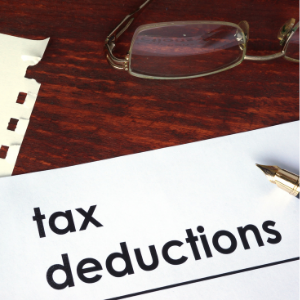
Understanding Capital Gains Tax for Rental Property Sales
When selling rental property in Long Beach, California, it is critical to understand how capital gains tax affects your financial situation. Capital gains tax is charged on the profit from selling an asset, such as your house.
In the case of rental properties, this tax applies to the difference between the property’s sale price and its adjusted basis, which includes the initial purchase price plus costs for renovations and less depreciation claimed during ownership. The Internal Revenue Service (IRS) classifies these gains as short-term or long-term, depending on how long you’ve owned the property.
If you’ve owned the rental property for more than a year before selling, you’ll often pay a long-term capital gains tax rate, usually lower than the short-term rates that apply to homes kept for less than a year. California also taxes capital gains, which affects your net proceeds from the transaction.
Understanding rules such as Section 1031 exchanges can assist you in avoiding these taxes by allowing you to reinvest revenues in similar investment properties within specific time constraints. To navigate these restrictions correctly, you must plan and engage with tax professionals who can provide individualized counsel tailored to your circumstances in the Long Beach real estate market.
Calculating Capital Gains: Key Considerations for Owners of Rental Properties

The capital gains tax liability of a Long Beach, CA, rental property owner selling must be calculated using several essential elements. Net sales price minus property adjusted basis equals capital gains.
The adjusted basis starts with the acquisition price, increases for capital improvements, and decreases for rental depreciation. Documenting these quantities accurately is crucial because even tiny errors might affect taxed amounts.
Federal and California state long-term capital gains apply. State tax rates match the owner’s ordinary income tax bracket, but federal rates vary depending on the income bracket. If residency requirements are met, owners should consider deferral or exclusion options such as a Section 1031 like-kind exchange or principal residence exclusion.
Meticulous record-keeping and expertise in California real estate taxation are essential to ensure compliance and identify planning opportunities that can help reduce rental property sales tax liability. Understanding the Covina property tax rate also plays a key role in effectively managing overall real estate expenses and maximizing returns.
If you’d rather avoid the hassle of tax calculations, market timing, and property repairs, working with Eazy House Sale is a practical alternative. They buy homes for cash in Long Beach and the surrounding areas, giving sellers peace of mind and a quick closing process.
Strategies to Reduce Capital Gains Taxes on Real Estate Transactions
Several ways can reduce capital gains and increase net proceeds for Long Beach, CA, residential rental property investors. The most popular method is the 1031 exchange, which defers capital gains when reinvested in a “like-kind” investment property. The exchange has a stringent timetable and identity constraints, but when done correctly, it avoids immediate tax liabilities, allowing equity to build in the investment portfolio.
Capital losses from stocks, bonds, or real estate can negate capital gains. Net capital losses can lower ordinary taxable income by $3,000 yearly. Progressive federal or California tax rates can significantly benefit from the tax move.
Before selling, homeowners should consider converting the property to a primary residence because IRC Section 121 allows single filers to exempt $250,000 and married couples $500,000 of gains if the residence was owned and occupied for at least two of the previous five years. Finally, tracking capital expenditures and maximizing depreciation during the holding period can improve the adjusted cost basis, reducing the taxable gain at sale.
California’s tax landscape is complex, so investors should hire a tax expert familiar with state, federal, and municipal laws. In Long Beach’s dynamic real estate market, precise sale structuring and paperwork strengthen owners’ tax position and reduce exposure.
The Effect of Federal and State Taxes on Rental Property Sales in California
Understanding the impact of federal and state taxes when selling rental property in Long Beach, California, is critical for property owners seeking to maximize their financial returns. At the federal level, capital gains tax is levied on the profit from the sale of a rental property.
The IRS categorizes these profits as short-term or long-term, based on the length of ownership. If the property is kept for over a year, long-term capital gains are usually taxed at a lower rate. However, California’s state taxes complicate matters further. Like several other states, California regards capital gains as regular income; thus, they are taxed at a higher rate.
This dual taxation structure demands meticulous preparation to reduce future tax liabilities. In addition, depreciation recapture must be considered; this federal tax occurs when previously claimed depreciation deductions are realized upon sale and taxed at ordinary income rates of up to 25%.
Sellers can efficiently minimize their tax burden while maximizing the financial rewards from their Long Beach real estate investments by strategically navigating these complex tax responsibilities through correct accounting and potentially adopting deferral options such as a 1031 exchange.
Key Factors That Define Capital Gains Tax Liability in Real Estate
Property owners must understand the factors influencing capital gains tax liability when selling a rental property in Long Beach, CA. The primary determinant is the difference between the property’s sale price and its adjusted basis, which includes the original purchase price and any improvements made over time.
The holding duration is necessary; properties owned for more than a year are taxed at long-term capital gains rates, typically lower than short-term rates applied to properties sold within a year of acquisition. Depreciation recapture is another critical consideration, as it includes paying the part of the gain attributable to depreciation deductions taken during ownership at higher ordinary income tax rates.
Additionally, exemptions or deferrals, such as Section 1031 exchanges, which allow for tax deferral by reinvesting proceeds in similar properties, may apply. Local market trends and timing impact taxable gains, as swings in property values can drastically alter possible profit from sales.
Understanding these critical factors allows investors to efficiently manage their capital gains tax requirements when selling Long Beach rental properties.
Exemptions and Deductions: Lowering the Tax Burden on Rental Property Sales

Knowing exclusions and deductions can drastically minimize capital gains tax when selling rental property in Long Beach, CA. The primary residence exclusion may apply if the property was your residence for at least two of the past five years.
Single filers can subtract $250,000 in capital gains, while joint filers can exclude $500,000. Selling costs, such as real estate commissions and legal fees, may also be deductible. Improving the property’s value over time might reduce the taxable gain by increasing the adjusted cost basis. Depreciation recapture enhances taxable income by adding previously claimed depreciation to your gain calculation, but strategic planning and tax advice can mitigate its effects.
A 1031 exchange lets people reinvest in like-kind properties without immediate tax consequences. By using these methods and remaining current on Long Beach laws, landlords can lower their tax burden when selling rental homes.
Long-term vs. Short-term Capital Gains: What They Mean for Rental Property Owners
Understanding the distinction between long-term and short-term capital gains is critical for rental property owners dealing with capital gains tax issues in Long Beach, CA. If you sell your rental property after over a year, the profit is taxed at long-term capital gains rates, often lower than short-term rates.
This can help you maximize your investment results. However, suppose you sell the property within a year after purchase. In that case, the profit is taxed as short-term capital gains, which are usually taxed at ordinary income tax rates and can dramatically raise your tax bill.
Understanding these distinctions is critical for Long Beach rental property owners seeking to maximize their financial returns. Federal long-term capital gains tax rates range from 0% to 20%, depending on your income level, although short-term profits can drive you into higher tax brackets because they are treated as regular income.
State taxes also play a role; California taxes all capital gains as ordinary income, regardless of whether they are short- or long-term. As a result, strategic planning for the timing of a sale can assist Long Beach rental property owners in properly managing their overall tax responsibilities while considering federal and state rules.
Legal Considerations for Selling Rental Properties in California
Understanding the legal aspects of capital gains tax is critical when selling rental homes in Long Beach, California. California’s tax rules can significantly impact your financial results when selling a rental property.
Sellers should be cognizant of federal and state tax duties, as California charges capital gains taxes in addition to federal laws. It is critical to calculating the property’s adjusted basis, which is the initial purchase price plus improvements and less depreciation claimed throughout ownership.
Correctly assessing this can affect the taxable gain received on the sale. Owners should also consider techniques such as a 1031 exchange, which allows them to delay capital gains by reinvesting the proceeds in another like-kind property. Furthermore, compliance with local legislation, such as tenant rights and disclosures required by California law, is critical to avoiding legal issues.
Consulting with a knowledgeable real estate attorney or tax expert familiar with Long Beach’s market intricacies can be beneficial during this complex procedure.
The Impact of Depreciation Recapture on Real Estate Capital Gains Taxation
Depreciation recapture is critical to capital gains taxation when selling Long Beach rental property. Depreciation deductions help rental property owners reduce taxable income. Deductions show the theoretical decline in property value from wear and tear. When the property is sold, the IRS requires prior depreciation to be “recaptured” at a higher tax rate than ordinary capital gains, which are currently restricted to 25%.
Depreciation deduction gains must be taxed separately from other capital gains. This component affects the entire tax payment upon sale; therefore, understanding it is crucial for tax planning. Property investors must evaluate their appreciation profit while accounting for depreciation recapture’s prospective tax increase, stressing its importance in Long Beach’s dynamic real estate market and financial planning.
Using the 1031 Exchange to Defer Capital Gains Tax on Investment Properties
When selling rental properties in Long Beach, CA, investors can strategically use a 1031 exchange to defer capital gains taxes. This IRS-approved process allows property owners to reinvest the proceeds from selling one investment property into another like-kind property, deferring the tax liability.
Investors can optimize their portfolios while avoiding capital gains taxes by adhering to rigorous schedules and requirements, such as identifying suitable replacement properties within 45 days and closing on a new purchase within 180 days. In Long Beach’s dynamic real estate market, using a 1031 exchange helps with tax deferral. It increases financial flexibility by allowing investors to upgrade or diversify their properties while keeping cash flow.
Through careful planning and consultation with knowledgeable tax advisors and real estate professionals familiar with California state-specific nuances, investors can effectively navigate the complexities of 1031 exchanges and make well-informed decisions that align with their long-term investment strategies.
Market Trends Affecting Real Estate Prices and Capital Gains in Long Beach, CA

Long Beach, CA, has recently experienced fluctuations in its real estate sector, which have profoundly influenced residential valuations and, by extension, capital gains liabilities for rental owners. The surge of buyers pursuing ocean-facing locations has fueled demand, PKV, elevated sale prices, and anticipated capital gains upon disposition.
Shifting economic variables, including prevailing interest rates and job growth in the broader Southern California economy, continue to steer investor sentiment and color the local market outlook. Expanding infrastructure initiatives and targeted neighborhood revitalization programs amplify title price momentum, ensuring sustained appreciation that appeals to landlords weighing liquidation.
Savvy investors must attune themselves to these converging forces, as mastery of market timing now intersects with the dexterous navigation of evolving capital gains regulations in this expanding urban center.
Common Mistakes to Avoid When Selling Rental Properties
In selling a Long Beach, CA rental property, owners must avoid numerous common mistakes that might lead to unexpected cash gains. A common mistake is miscalculating the modified cost basis, which might affect the taxable gain.
Sellers often forget depreciation recapture and capital improvements when computing tax basis. Sale timing is also essential; selling in a year of high ordinary income could push the seller into a higher tax bracket and increase capital gains tax.
Property owners typically overlook exemptions or methods like the section 1031 exchange, which defers capital gains tax when reinvested in a like-kind property. Misinterpreting federal and California tax rules can cause unanticipated and costly consequences.
Tax counsel familiar with the Long Beach real estate market and its laws is needed to navigate these complex challenges.
How Can I Avoid Capital Gains Tax on Rental Property in California?
There are several ways to avoid capital gains tax on rental property purchases in Long Beach, CA. A 1031 exchange is a common way to postpone capital gains taxes by reinvesting sale proceeds in a similar property.
Investors who want to buy more real estate without taxes can use this tax-deferral approach. If they resided in the rental property for two of the last five years before selling, homeowners may qualify for the principal residence exclusion. This can exclude $250,000 in capital gains for single filers and $500,000 for married couples filing jointly. Another option is to offset gains with capital losses from other investments or maximize property renovation or depreciation recapture deductions.
These possibilities must be discussed with a skilled tax advisor who understands California’s capital gains law to ensure compliance and minimize taxes.
Do I Have to Pay Capital Gains Tax If I Sell a Rental Property?
Capital gains tax must be considered when selling a Long Beach rental property. Property owners must pay capital gains tax on rental property sales earnings. This tax is calculated by removing the selling price from the property’s adjusted cost basis, which includes the purchase price and renovations. Options exist to reduce this tax burden.
Reinvesting earnings in another investment property in a 1031 exchange defers capital gains tax. Furthermore, assuming you’ve lived in the property as your primary residence for at least two of the five years before the sale. If so, IRS Section 121 may exclude some or all of your capital gains.
Understanding these differences is essential for managing Long Beach rental home sales finances and reducing taxes. A skilled tax expert can help you negotiate local laws and provide customized advice.
How to Calculate Long-term Capital Gain on Sale of Rental Property?
To calculate the long-term capital gain from selling a Long Beach, CA rental property, you must first estimate its adjusted basis. Start with the acquisition cost, plus the capital upgrades made after the purchase, and remove the depreciation claimed during ownership.
Use the adjusted basis to compute net sales proceeds. Subtract real estate commissions and transfer taxes from the gross sale price. The difference between net proceeds and adjusted basis is the long-term capital gain. Consider federal and California state taxes on this gain. California has a capital gains tax on real estate transactions, so you must account for both. If you reinvest in like-kind property, the 1031 exchange might delay gains, changing your tax outcome.
Hire a California real estate and capital gains tax adviser for precise number-crunching and strategic planning. This professional counsel will help you comply with all statutes and find planning opportunities to reduce your sales tax exposure.
What Is the Big Loophole in Capital Gains Tax?
Owners liquidating Long Beach rental properties can defer capital gains taxes with the 1031 exchange. By allowing sellers to reinvest proceeds in like-kind real estate, the exchange delays capital gains recognition, making the transfer tax-exempt.
This approach allows investors to deploy accumulated equity into larger or more acquisitions in Long Beach’s dynamic real estate climate, increasing portfolio exposure to the market’s upward trajectory without immediate tax burden. Deferral can continue forever if subsequent replacement properties fit the “like-kind” condition, allowing multi-generational wealth accumulation within unrealized gains.
However, IRS rules must be followed to maintain the benefit, including the 45-day identification and 180-day consummation timeframes. Strategic formulation is crucial since any oversight can result in complete tax responsibility. When appropriately used, the 1031 exchange can reduce the cash drain of capital gains taxation on rental transactions.
Selling a rental property in California can feel like walking through a maze of tax laws and real estate hurdles. That’s why homeowners across Long Beach and Lakewood turn to Eazy House Sale. Whether you want to sell your Long Beach house fast or buy home for cash in Carson, they provide a stress-free path forward so you can focus on your next chapter. Curious how we can help? Contact us at (855) 915-1382 today!
Helpful Long Beach Blog Articles

